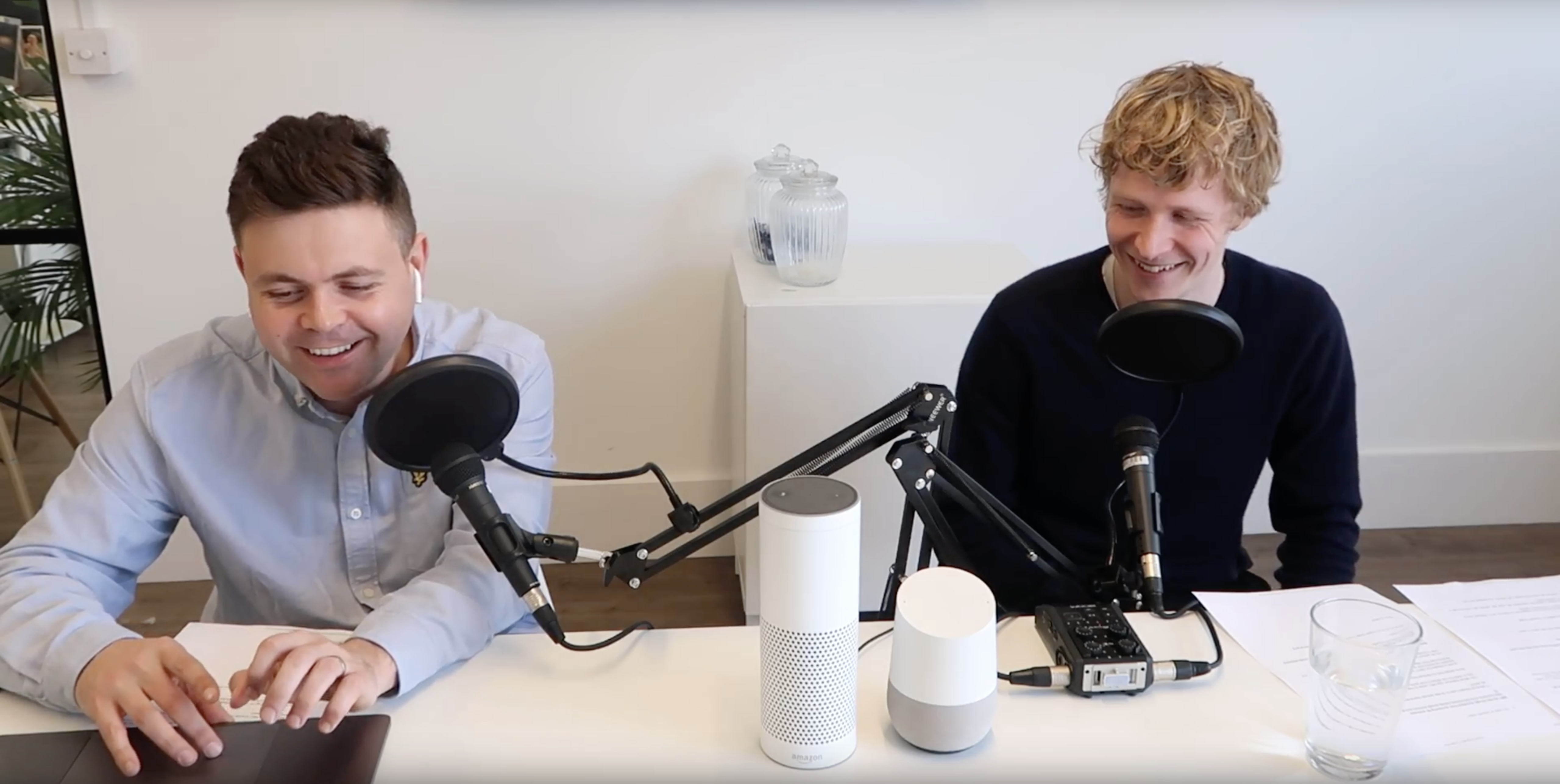If you’re an entrepreneur, you need to start a B2B podcast. Why? Because, if you put in the legwork and do it well, it will get you new business leads. If you are the host of even a moderately successful B2B podcast, people in the industry will see you as an authoritative voice in your niche. This doesn’t just mean that some listeners will want to do business with you. Better still, it means that by listening to your podcast they’ll start to feel like they know you. This means that when it comes to building a new client relationship with someone who found you through your podcast, a lot of the legwork is already done.
Think about some of the B2B podcasts you listen to. You may just listen to them for insights about your industry, but you’d be surprised how many listeners will get in touch with the host to enquire about doing business with them. For example, I’m a huge fan of the Gary Vee Podcast. I’ve never got in touch with him to ask him to do some work for me, but I would bet any money that listeners do get in touch with him for exactly that reason every single day.
I make my own podcast, The Voice for Voice, in which I talk about all the latest developments in the world of voice tech. We get 5,000 listeners to each episode. In the wider world of podcasting isn’t exactly earth shattering numbers. But despite this, I’m getting five new business leads via the podcast every single day.
So, if there’s only one thing you take away from this article it should be this; start your own podcast. Once you’ve started your podcast, here’s some tips on how you can use it to start driving leads.
Remember, niche content is king
The first thing to keep in mind when coming up with the idea for your show is that in the podcasting world, niche content is king. The big benefit of podcasting over radio as a platform is that it allows niche content to grow an audience. Your content doesn’t have to have mass appeal, and for B2B podcasting, it’s actually somewhat better if it doesn’t have a broad appeal. From a lead acquisition point of view, the aim is to showcase your expertise on a particular subject. You’ll find this hard to do if you try and create a generic business podcast.
There’s a couple of other things to consider too. First, make sure the niche you choose is something you’re both knowledgeable about. This is for obvious reasons, you’re going to be talking about this particular topic on mic an awful lot. Also, if you’re looking to win new business, you need to come across like you know what you’re talking about. Your listeners won’t want to do business with you if you come off sounding like a bit of a chancer.
Second, make sure your topic is something you’d be able to help someone out with if they get in touch. Let’s say you decide to start a podcast about programmatic advertising. You do this because you’re really knowledgeable about it, but your company doesn’t have the capacity to take on any more programmatic work. You’re shooting yourself in the foot, because you’ll have to turn down business when the leads start rolling in.
Build and maintain relationships
As any entrepreneur worth their salt can tell you, making new contacts is absolutely vital to running a successful business. Having your own B2B podcast is a great way to make new contacts, and spend some face to face time with them, without seeming overly pushy or salesy. And how can you do this? Simple, invite them to guest on your podcast. Whether they’re someone you’d like to use as a supplier, someone you’d like to become a client, or someone you’d like to form a strategic partnership with, this is a great way of building a relationship with them.
And in any event, even if you don’t end up working with them, there’s still plenty of benefits. During recording, you’ll have no doubt got some great content out of your discussion with them, and they’ll most likely share it among their network as well, putting your podcast in front of new potential subscribers.
This same theory applies to current clients and contacts as well. Inviting a current business associate onto your podcast is a great way of improving your relationship with them. They’re also likely to share the show with their network, so the whole exercise is a win-win.
Make sure you’re contactable
This may seem obvious, but give your listeners an easy way to contact you. Unless you’re comfortable giving out your phone number on air, plugging your professional social media accounts is a great way of doing this. After all, you don’t want to do all the hard work and then fall down at the last hurdle because would-be clients can’t contact you. It’s also well worth frequently mentioning your business and what it does on the show. Don’t make it overly salesly, but let your listeners know what it is you do. You never know, some of your audience may need the exact services you provide.
Just remember not to go over the top. Remember, people listen to podcasts – even B2B ones – to be entertained and to pass the time. Even if your show is highly informative, your audience will tune in during dead time (such as while they’re commuting). If your podcast comes across as nothing but an advert for your business, they’ll switch off and start listening to someone else’s show. You’ve been warned!
Got questions? Get in touch
If you’ve got questions about how to make B2B podcasting work for you, feel free to get in touch. At my agency, Move Digital, we provide podcasting services, from consultation on strategy, to recording, editing and hosting. Head to movedigital.co.uk to get in touch.
Geraint John is the Managing Director of marketing agency Move Digital, and an expert in the burgeoning field of voice technology. Move, founded by Geraint in 2012, focuses on voice, podcasting, SEO, and digital advertising.




